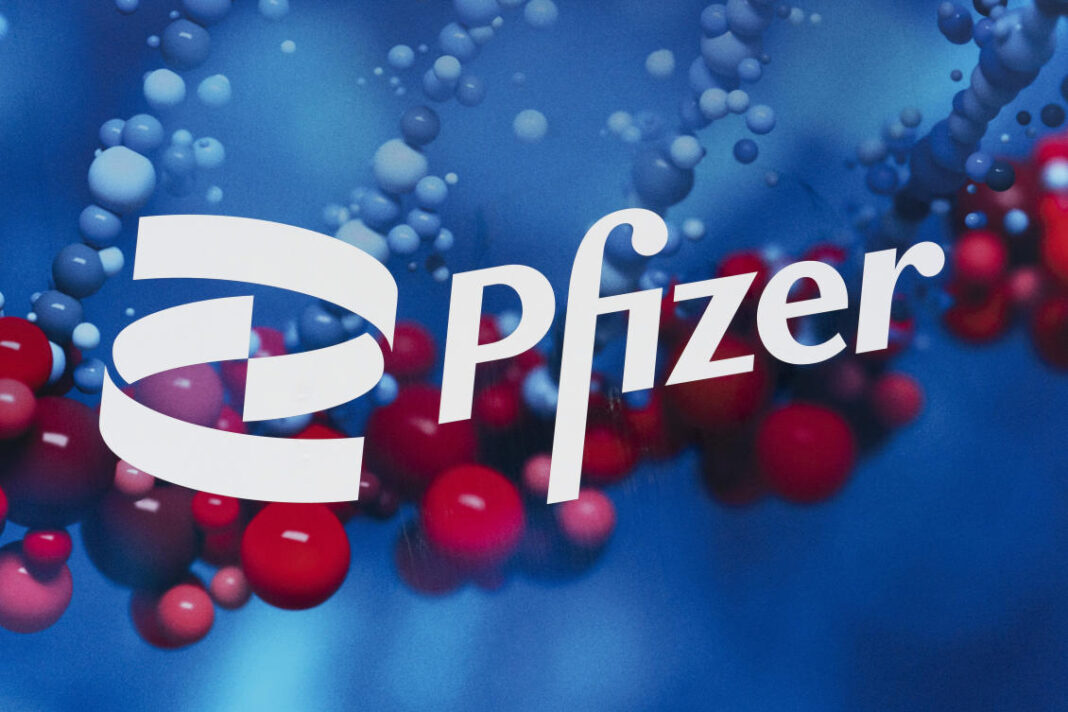DUBAI: Pfizer Inc’s experimental antiviral pill to treat COVID-19 was shown to cut by 89 percent the chances of hospitalization or death for adults at risk of developing severe disease, the company said on Friday.
It also comes as an offer to what could be a promising new weapon in the fight against the pandemic.
The trial’s results suggest that the oral drug surpasses Merck & Co. Inc’s pill, molnupiravir, which was shown last month to halve the risk of dying or being hospitalized for COVID-19 patients at high risk of serious illness.
Pfizer’s pill, with the brand name Paxlovid, could secure US regulatory approval by the end of the year. The Pfizer trial was stopped early due to its high success rate. Full trial data is not yet available from either company.
President Joe Biden said the US government has secured millions of doses of the Pfizer drug.
“If authorized by the FDA we may soon have pills that treat the virus in those who become infected,” Biden said. “The therapy would be another tool in our toolbox to protect people from the worst outcomes of COVID.”
Shares in Pfizer, which also makes one of the mostly widely used COVID-19 vaccines, were up 9 percent to $47.82, while Merck’s were down 9.3 percent to $82.09. Shares of vaccine makers took a hit, with Moderna Inc, Pfizer’s German partner BioNTech SE and Novavax all down 13-21 percent.
The pill is given in combination with an older antiviral called ritonavir. The treatment consists of three pills given twice daily. It has been in development for nearly two years.
Pfizer is in discussions with 90 countries over supply contracts for its pill, Chief Executive Officer Albert Bourla said in an interview.
Bourla said Pfizer expects to price its treatment close to where Merck has priced its pill. Merck’s US contract price for its pill is around $700 for a five-day course of therapy.
Even with the potential offered by the Pfizer and Merck pills, preventing COVID-19 infections through broad use of vaccines remains the best way to control a pandemic that has killed more than 5 million people worldwide, including more than 750,000 in the United States, according to infectious disease experts.
“Vaccines are going to be the most effective and reliable tool that we have in this pandemic,” said Dr. Grace Lee, professor of pediatrics at Stanford University School of Medicine. “These oral medications are going to augment our ability to really reduce the risk of severe disease, hospitalization and death, which is huge, but it won’t prevent infection.”
While more than 7 billion vaccine doses have been administered worldwide, that has covered only about half the world’s people. In the United States, 58 percent of all people, including 70 percent of adults, are fully vaccinated. There are more than 400,000 new COVID-19 cases daily worldwide, with infections rising in 50 countries.
Mizuho analyst Vamil Divan forecast a “very minor impact” from the Pfizer drug on vaccination among people who do not want the vaccine or a booster shot as recommended by US health regulators.
“I think there’s a small percentage of people that may decide not to get vaccinated, now that there are good treatment options,” Divan said.
Pfizer said it plans to submit interim trial results for its pill to the Food and Drug Administration (FDA) before the US Thanksgiving holiday on Nov. 25.
The company said it expects to manufacture 180,000 treatment courses by the end of this year and at least 50 million courses by the end of next year, including 21 million in the first half of 2022.
Antivirals need to be given as early as possible, before an infection takes hold, to be most effective.
The planned analysis of 1,219 patients in Pfizer’s study examined hospitalizations or deaths among people diagnosed with mild to moderate COVID-19 with at least one risk factor for developing severe disease, such as obesity or older age.
Among those given Pfizer’s drug within three days of symptom onset, the pill lowered the chances of hospitalization or death for adults at risk of developing severe COVID-19 by 89 percent compared to patients who received a placebo. Among these patients, 0.8 percent were hospitalized and none died by 28 days after treatment, compared to a 7 percent hospitalization rate and seven deaths in the placebo group.
Rates were similar for patients treated within five days of symptoms: 1 percent of the treatment group was hospitalized, compared to 6.7 percent for the placebo group, which included 10 deaths. Pfizer said that works out to being 85 percent effective at preventing hospitalization or death.
An FDA panel of outside experts is scheduled to meet Nov. 30 to discuss Merck’s pill, which was approved by British regulators https://www.reuters.com/business/health care-pharmaceuticals/britain-approves-mercks-oral-covid-19-pill-2021-11-04 in a world first on Thursday. Pfizer said it did not know if Paxlovid would be reviewed at that meeting.
Pfizer did not detail side any effects but said adverse events happened in about 20 percent of both treatment and placebo patients. Possible side effects include nausea and diarrhea.
Pfizer is holding discussions about a license for generic manufacturing of the pill for low-income countries, Unitaid’s Medicines Patent Pool said in a statement.




